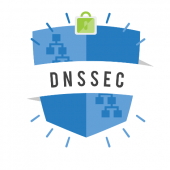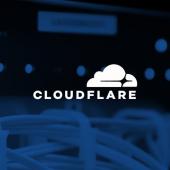-
Cloudflare's WARP Secures iOS and Android Web Traffic for Free
Cloudflare's WARP mobile app for iOS or Android designed to secure all the Internet traffic on one's mobile devices is now available for everyone.
- September 25, 2019
- 11:49 AM
 0
0
-
Astaroth Trojan Uses Cloudflare Workers to Bypass AV Software
A new malicious campaign is actively distributing a new Astaroth Trojan variant by abusing the Cloudflare Workers serverless computing platform to avoid detection and block automated analysis attempts.
- September 02, 2019
- 02:48 PM
 0
0
-
Cloudflare Worldwide Outage Caused by Bad Software Deployment
Cloudflare experienced a worldwide outage today for about 30 minutes, with network performance issues that brought down a multitude of websites and web services all around the world, and triggered "502 Bad Gateway" errors.
- July 02, 2019
- 12:48 PM
 1
1
-
BGP Route Leak Causes Cloudflare and Amazon AWS Problems
Cloudflare is currently suffering an outage this morning that is affecting web sites around the world. This outage is not affecting all regions and only certain domains, including BleepingComputer, so some of you will be able to see this article and others won't until the issue is resolved.
- June 24, 2019
- 08:26 AM
 1
1
-
New HTTPS Interception Tools Available from Cloudflare
Cloudfare announced the release of two new tools designed to make it simpler to check if TLS connections to a website have been intercepted, to detect vulnerable clients and potentially notify them when their security is compromised or degraded.
- March 18, 2019
- 04:30 PM
 1
1
-
Cloudflare Deploys Firewall Rule to Block New Drupal Exploits
Exploitation attempts of a highly critical vulnerability discovered in the Drupal content management software (CMS) on February 20 were blocked by Cloudflare using Web Application Firewall (WAF) rules designed to protect its customers' websites from being compromised.
- March 05, 2019
- 07:15 PM
 0
0
-
Cloudflare Brings its 1.1.1.1 DNS Service to Android & iOS Mobile Devices
This past April, Cloudflare and APNIC released a new 1.1.1.1 public DNS resolver service whose goal was not only to make looking up Internet addresses faster, but also make them more private. Today, Cloudflare has released a 1.1.1.1 app for Android and iOS to easily bring these same features to your mobile devices.
- November 11, 2018
- 12:43 PM
 3
3
-
Phishing Attacks Distributed Through CloudFlare's IPFS Gateway
Yesterday we reported on a phishing attack that utilizes Azure Blob storage in order to have login forms secured by a Microsoft issued SSL certificate. After reviewing the URLs used by the same attacker, BleepingComputer has discovered that these same bad actors are utilizing the Cloudflare IPFS gateway for the same purpose.
- October 04, 2018
- 03:00 AM
 0
0
-
Cloudflare Becomes a Registrar, Sells Domains At Cost
Cloudflare has announced that they are expanding their domain registrar services so that all of their customers can register or renew a domain at cost. You heard me right. No more paying extra fees to register a domain. You pay what Cloudflare pays for a domain registration or renewal.
- September 27, 2018
- 08:00 AM
 3
3
-
Cloudflare Ends CAPTCHAs for Tor Users While Blocking Bad Actors
Cloudflare announces today its own Onion Service, which should make anonymous access through Tor easier to websites in its network, and reduce the malicious traffic aimed at them.
- September 20, 2018
- 08:25 AM
 0
0
-
Cloudflare Makes DNSSEC Activation Easy
A boost is expected in the near future in the adoption of the DNSSEC technology that establishes trust in the Domain Name System (DNS) - the mechanism responsible for translating website names into machine-intelligible data.
- September 18, 2018
- 09:41 AM
 0
0
-
CloudFlare's IPFS Gateway Makes it Easy to Create Distributed Web Sites
CloudFlare has introduced a new gateway that allows you to easily access content stored on IPFS, or the InterPlanetary File System, through a web browser and without having to install a client.
- September 17, 2018
- 09:00 AM
 2
2
-
Adware Launches In-Browser Mining Sites Pretending to be Cloudflare
An adware bundle has started to create a Windows autorun that automatically launches Chrome so that it connects to a in-browser mining page. To make matters worse, it does it in a way that makes it so Chrome is invisible.
- May 16, 2018
- 06:19 PM
 0
0
-
Cloudflare's 1.1.1.1 DNS Service Makes the Internet More Private & Faster
Today, a free DNS resolution service called 1.1.1.1 was unveiled that makes looking up Internet address not only faster, but more private. This new service was created by APNIC, who owned the 1.1.1.1 address, and Cloudflare who will use their network to host the DNS service.
- April 01, 2018
- 08:12 PM
 8
8
-
Memcached Servers Can Be Abused for Insanely Massive DDoS Attacks
Crooks can abuse Memcached servers to launch insanely massive DDoS attacks using very few computational resources on their end.
- February 27, 2018
- 01:31 PM
 3
3
-
Cloudflare Now Provides Unmetered DDoS Mitigation Without Extra Costs
In a move that's bound to rock the DDoS mitigation industry, Cloudflare announced yesterday its intention to offer DDoS protection at no extra costs during a DDoS attack's peak.
- September 26, 2017
- 03:33 PM
 2
2
-
Typo in Cloudflare Server Source Code Leaks Customer Info, Cookies, Passwords
A typo in the source code of a Cloudflare component has exposed the personal information of users visiting sites protected by Cloudflare's service, along with potentially more sensitive details such as cookies, passwords, authentication tokens, API keys, and others.
- February 24, 2017
- 04:56 AM
 3
3
 0
0



















